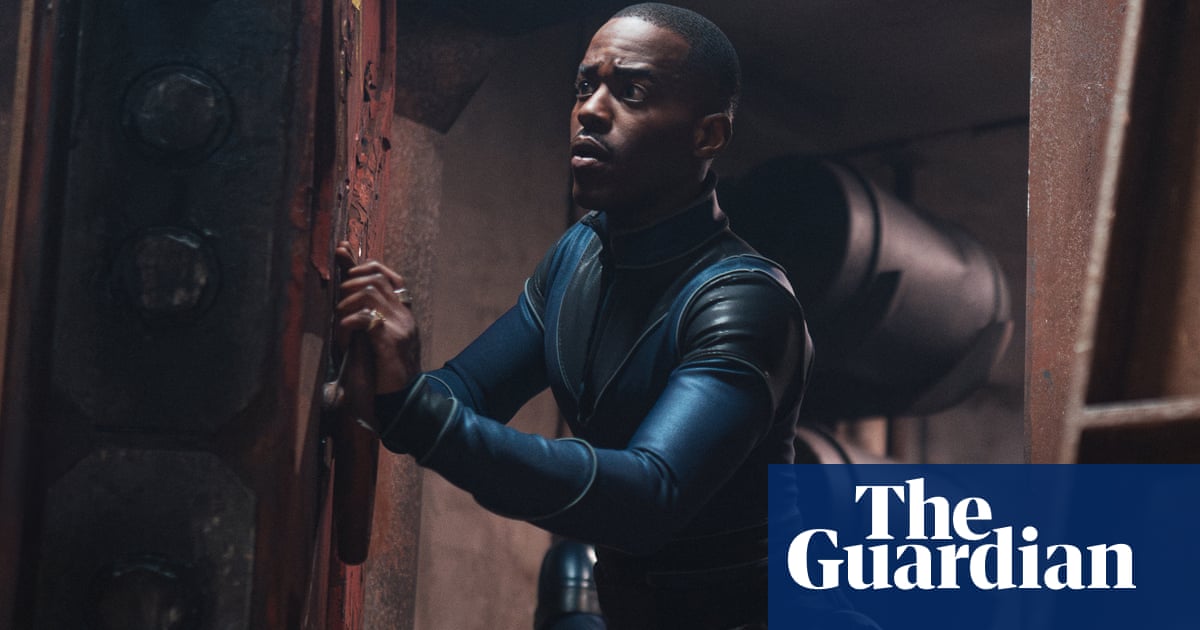A lot of science fiction and fantasy franchises love to commission sequels but have a patchy record on delivering second stories that match up to the first.Russell T Daviesand Sharma Angel-Walfall got close to pulling it off here, but the much-touted Disney+ bigger budget may have worked against it out-scaring the original.
Midnight, where we first met this galvanic radiation-soaked entity in 2008, had a cast of eight trapped on one space transporter set barely bigger than a couple of SUVs. By contrast, the base and sets on planet 6767 were huge, and lacking the claustrophobia that could have made this even more terrifying.
As the Doctor,Ncuti Gatwahad a lot less room for his usual charm and flair when thrust instantly into a space military situation. Being told it was not appropriate for him to call an officer “babes” was one of the few moments of humour afforded him.
Slow Horses star Christopher Chung as Cassio Palin-Paleen was the latest in a long line of enjoyably dislikable second-in-commands. He took an instant distaste to his commander listening to this mysterious time-travelling stranger when the option of just shooting at something was on the table.
Caoilfhionn Dunne was superb as that commander, Shaya Costallion. Given her early line about hope being irrelevant, it was a cruel twist that her final noble self-sacrifice was, ultimately, irrelevant. The bleak vignette after the Tardis departed suggested that It Has No Name will no doubt wreak havoc on the crew we did see escape.
The episode, though, belonged to Rose Ayling-Ellis’ performance as Aliss. When the Doctor said both the survivor and the killer could be behind the door, it was true in more ways than one. She showed the vulnerability of having been abandoned in those traumatic circumstances, but also managed to convey a quiet malevolence, as her character began to think she might just get home alive without revealing that she already knew that something reallywasbehind her. And that it killed.
What ifDoctor Whodid Midnight again, but couldn’t make it quite as tense?
As Belinda, Varada Sethu’s nursing profession has stuck with her. This is the second time in three weeks she has ended up having to try to find her way around alien physiology and a medikit from another world.
It was another adventure in which Gatwa and Sethu were barely ever out of earshot of each other. This may be contributing to the feeling that the chemistry and friendship between them has developed in front of us, rather than last year when we were just expected to take it on trust that Ruby Sunday (Millie Gibson) and the Doctor had grown close off-screen.
The episode did build suspense well, and by Doctor Who standards the scenes of the dead mining colonists were gruesome. There will also surely be fewer more effective jump scares this season than when Belinda first glimpsed the Midnight creature.
The sequence where several troopers met their violent end, mostly through confusion placing them at the fatal angle, was panic-inducing. As a drawback, the mechanics of the wall of mercury causing a reflection and allowing Aliss to escape the clutches of the creature weren’t terribly well explained.
Well, now we know that the Earth has somehow vanished from the continuity of the series. The floating relics of our planet seen at the end ofThe Robot Revolutionappear to have come home to roost. And Anita Dobson was imperious as a future bureaucratic space commander, whoever she transpires to be.
Britney Spears’Toxicgot another Doctor Who airing. It appeared in the 2005 Christopher Eccleston episodeThe End of the Worldwhere it was introduced as “a traditional ballad” with which to mourn the death of the planet Earth. That was also the first episode to show psychic paper, deployed by Gatwa here on planet 6767.
Does Belinda’s name now technically have to be added to the growing list of companions who have been killed off in the programme, giving she was shot to convince the creature she was dead and had to have her heart restarted? Probably not.
The Doctor answering “magic” when asked by Cassio what the sonic screwdriver was doing was surely intended to either amuse or antagonise, depending on whether you think it has been used as an over-powered magic wand in the modern era.
Under the Lakein 2015 saw Peter Capaldi in another “base under siege” style scenario featuring a major character where the actor is deaf, with Sophie Stone starring as Cass and Zaqi Ismail as her signer Tim Lunn.
This isn’t the first time the Earth has gone missing. The Daleks stole it in pursuit of making a reality bomb in the David Tennant two-parterThe Stolen Earth/Journey’s Endin 2008. The Time Lords have also been guilty of a similar heist. It was revealed during Colin Baker’s 14-partThe Trial of a Time Lordepic in 1986 that, as part of a cover-up, they once moved Earth two light years and renamed it Ravolox.
Ruby Sunday! Unit! It’s an episode that Millie Gibson has suggested is about finding out what PTSD would look like for a former companion. See you then!
